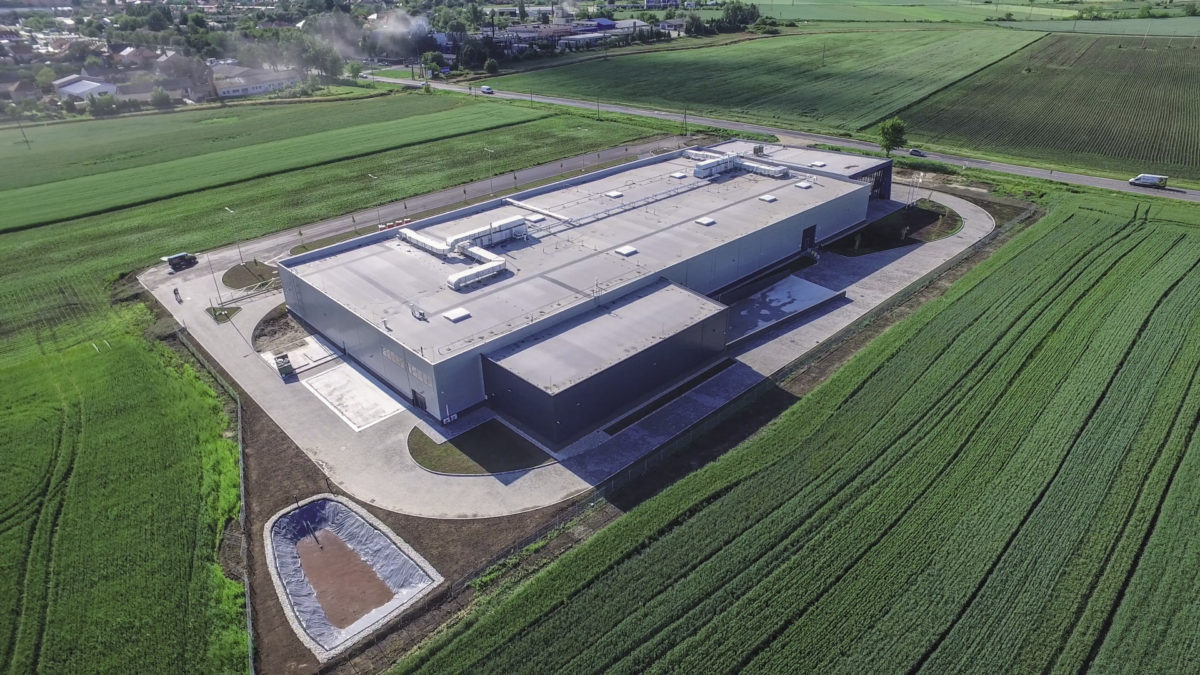From pv magazine Germany
Swiss solar manufacturer Meyer Burger Technology AG has reached an agreement with the Hungarian photovoltaic manufacturer Ecosolifer on a contract for the supply of a production line for heterojunction cells signed in 2015.
Under the terms of the agreement, Ecosolifer has agreed to make a partial payment of CHF890,000 (€828,000). As a consequence, Meyer Burger will report a write-off of CHF2.6 million in the current fiscal year, of which CHF1.97 million will be reported as a net loss.
Ecosolifer's project to set up the heterojunction production line in Cszorna, Hungary, was riddled with obstacles. Due to project restructuring and refinancing, there were several delays. Therefore, the planned deployment of the cell production line for 2016 could not take place. Meyer Burger stored the equipment over a longer period of time. After the project was resumed, the system was put into operation despite the difficult conditions and has now been finally accepted by Ecosolifer as part of a settlement agreement.
Meyer Burger will continue to provide services for the Hungarian photovoltaic manufacturer.
The Swiss company is currently transforming itself from a PV production equipment provider into a cell and module manufacturer. It is building a heterojunction cell production facility in Bitterfeld, in Germany, initially with an annual capacity of 400 MW, and a module production facility with the same capacity in Freiberg, Saxony. The first cells and modules should roll off the assembly line next summer.
The settlement agreement with Ecosolifer was defined by the company as “a further step to break away from their past and to concentrate on the new captive business model.” In the medium term, the Swiss company plans to upscale its production to a gigawatt-scale operation.
Ecosolifer is currently working in the Genuine Europe Solar consortium in which the wafer manufacturer Nexwafe and the module manufacturer Sunedison are also involved. By 2020, the companies are planning to build up production capacities of 2 GW for the manufacture of heterojunction modules with thin wafers.
This content is protected by copyright and may not be reused. If you want to cooperate with us and would like to reuse some of our content, please contact: editors@pv-magazine.com.




By submitting this form you agree to pv magazine using your data for the purposes of publishing your comment.
Your personal data will only be disclosed or otherwise transmitted to third parties for the purposes of spam filtering or if this is necessary for technical maintenance of the website. Any other transfer to third parties will not take place unless this is justified on the basis of applicable data protection regulations or if pv magazine is legally obliged to do so.
You may revoke this consent at any time with effect for the future, in which case your personal data will be deleted immediately. Otherwise, your data will be deleted if pv magazine has processed your request or the purpose of data storage is fulfilled.
Further information on data privacy can be found in our Data Protection Policy.